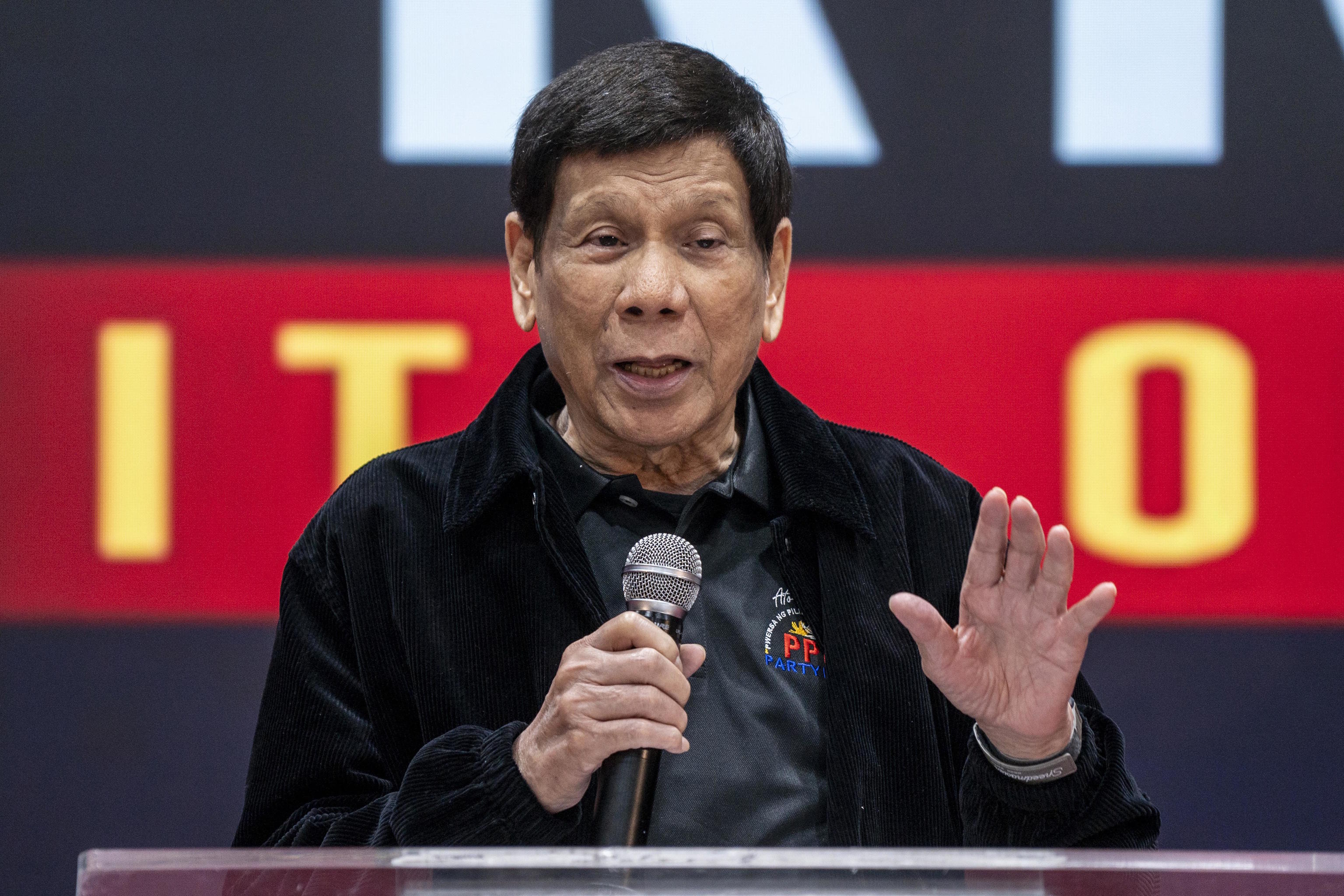The residents of Davao have shown absolute loyalty at the polls to 'The Punisher.' This was the nickname earned by Rodrigo Duterte for his over two decades as mayor of this Filipino city leading bloody campaigns against drug traffickers, which he later launched nationwide when he became the President of the country. Now, Duterte, at 80 years old, has once again swept the elections in his political stronghold. The issue is that at this moment he is nearly 12,000 kilometers away from the Philippines, locked in a cell in The Hague, where he faces charges of crimes against humanity.
After the midterm elections in the Philippines were held on Sunday, a marathon election where a dozen seats in the Senate and over 18,000 positions in local administration are elected, including mayors of this vast Southeast Asian country, all the attention is focused on the uncertain victory of former President Duterte in his stronghold of Davao, where he was running for his eighth term as mayor and garnered eight times more votes than his closest rival.
But the veteran leader was arrested on March 11 at Manila airport at the request of the International Criminal Court (ICC) and transferred to the detention center in The Hague, located within facilities in the Netherlands that served as a Nazi prison complex during World War II.
"We have assessed the material presented by the Prosecutor and have found reasonable grounds to believe that Rodrigo Duterte is individually responsible as an indirect co-perpetrator of the crime against humanity of murder allegedly committed in the Philippines between November 1, 2011, and March 16, 2019," read the statement signed by the three ICC judges who will judge the Filipino.
Several reports from human rights organizations, journalistic investigations, and judicial inquiries have documented and collected evidence on the killings during a war on drugs that officially left 6,000 dead, although many independent organizations raise the number of victims to 30,000.
Duterte was first elected mayor of Davao in 1988 after the uprisings that overthrew dictator Ferdinand Marcos, the father of the current president. The leader's popularity grew when he managed to turn Davao, home to a million and a half inhabitants, a place then plagued by crime and drugs, into one of the safest cities in the country.
He achieved this, as he himself explained last year during a Senate hearing, by creating a "death squad" made up of criminals who were dedicated to killing other criminals. He added to this the operations of summary executions on the streets against alleged drug traffickers, which he later promoted in many corners of the country during his presidency. His supporters argue that this bloody campaign was necessary and that they now live much safer.
There are many uncertainties about whether Duterte can actually govern Davao from the prison in The Hague. Legal experts have explained that, despite his arrest, no one challenged Duterte's eligibility to run for public office, but the electoral code requires elected officials to take an oath within six months after the election before assuming their duties. Many point out that if power in Davao does not fall into the hands of the veteran leader, it will be his son, Sebastian Duterte, who takes the reins. The latter ran for vice mayor of the city - the mayor and vice mayor races are separate in local elections in the Philippines - and, according to initial counts, would have also won by a wide margin.
Duterte's daughter, Sara Duterte-Carpio, who visited her father in the prison in The Hague, is the current vice president of the Philippines, although she is awaiting trial by the Senate after being impeached on corruption charges and for allegedly leading a plot to assassinate President Marcos.
